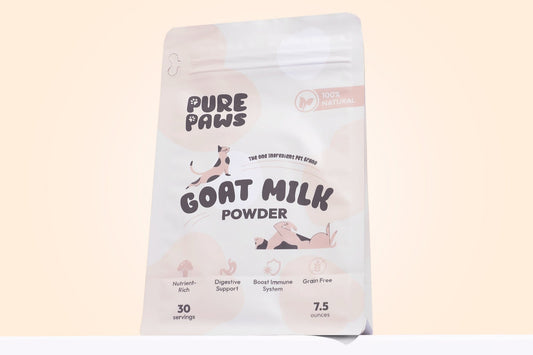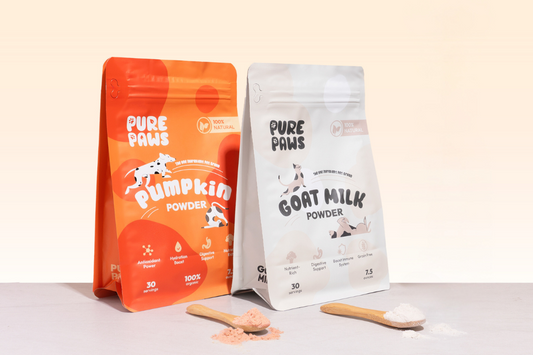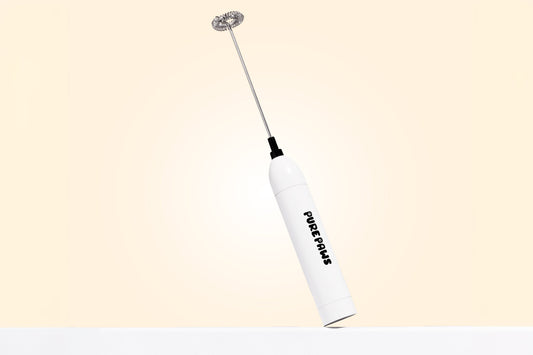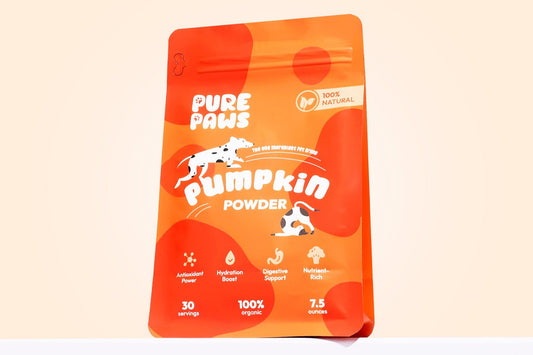
The Benefits and Risks of Pumpkin for Dogs
Pumpkin is widely recognized as a nutritious addition to a dog's diet, celebrated for its dietary fiber, vitamins, and minerals that can support canine health in various ways. However, like any supplement or dietary change, it's essential to approach the inclusion of pumpkin in your dog's diet with an informed perspective, recognizing both its benefits and potential risks. This blog explores the multifaceted role of pumpkin for dogs, helping pet owners make informed decisions for their furry friends.
The Benefits of Pumpkin for Dogs:
-
Digestive Health: One of the most significant benefits of pumpkin is its ability to aid in digestion. High in dietary fiber, pumpkin can help regulate bowel movements, easing both constipation and diarrhea. It’s an effective, natural remedy for digestive issues.
-
Urinary Health: Pumpkin seeds are rich in antioxidants and fatty acids, which can promote urinary health. They can help prevent kidney stones and reduce the risk of urinary tract infections.
-
Weight Management: The high fiber content in pumpkin also means it's great for weight management. It can help your dog feel full longer, reducing the overall caloric intake and assisting in weight loss or maintenance.
-
Hydration: Pumpkin has a high moisture content, which can help hydrate your dog, particularly if they don't drink enough water.
-
Nutrient-Rich: Pumpkin is packed with essential vitamins and minerals, including vitamin A for vision, growth, and immune function; vitamin C, an antioxidant that can help with degenerative conditions; and zinc, which improves skin and coat health.
Potential Risks of Pumpkin for Dogs:
While pumpkin is generally safe for dogs, there are a few considerations to keep in mind:
-
Moderation is Key: Too much pumpkin can lead to nutrient imbalances and gastrointestinal upset. It's essential to introduce pumpkin into your dog's diet gradually and in moderation.
-
Choose Plain Pumpkin: Many pumpkin-flavored or -filled products contain additives like sugar, xylitol, spices, or other ingredients harmful to dogs. Always opt for plain, pure pumpkin without added sugars or spices.
-
Not a Complete Solution: While pumpkin can aid in digestion and weight management, it's not a cure-all and should not replace a balanced diet or necessary medical treatment.
-
Potential Allergic Reactions: Though rare, some dogs might be allergic to pumpkin. Introduce pumpkin slowly and watch for any signs of an allergic reaction, such as itching, swelling, or gastrointestinal upset.
Incorporating Pumpkin into Your Dog's Diet:
When introducing pumpkin to your dog’s diet, start with small amounts—a teaspoon for small dogs and a tablespoon for larger breeds—and observe how they react to it. Pure, canned pumpkin is a convenient and safe option, but ensure it’s 100% pumpkin with no additives.
Pumpkin can be a beneficial addition to your dog's diet when used correctly. Its advantages in promoting digestive and urinary health, aiding in weight management, and hydrating, coupled with its rich nutrient content, make it a worthy supplement. However, it's crucial to approach its inclusion with care, mindful of the potential risks and the importance of moderation.
If you're considering adding pumpkin to your dog's diet or looking for more natural ways to support their health, visit Pure Paws. Discover our range of natural pet supplements and learn more about how to provide the best care for your furry friend.








